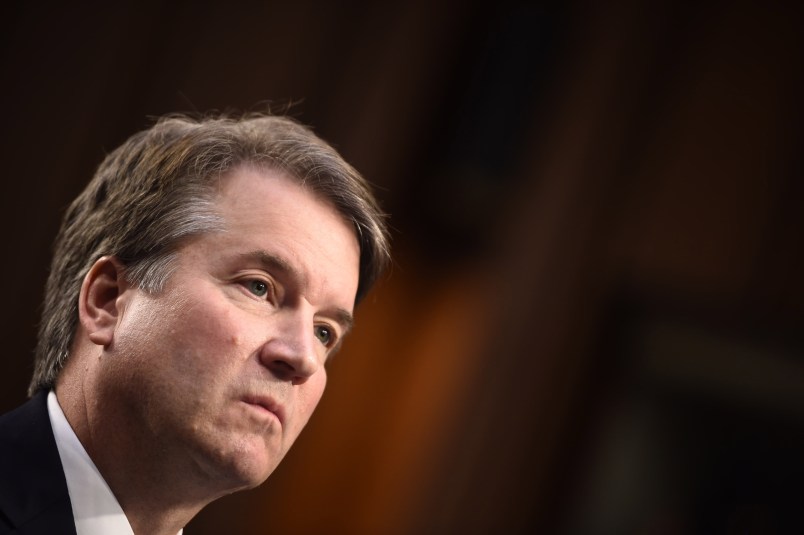The excerpt of New York Times reporters Robin Pogrebin and Kate Kelly’s book “The Education of Brett Kavanaugh: An Investigation” created a stir this week, with the most recent controversy surrounding Supreme Court justice Brett Kavanaugh’s participation — or lack thereof.
The reporters have spoken about their attempts to interview Kavanaugh in recent days, making clear there was a conflict over the terms of a potential interview.
Pogrebin and Kelly said in a Yahoo News interview that they’d kept Kavanaugh and “intermediaries” apprised of their progress throughout the book and started to try to sway the justice to sit down with them early on.
Despite some back-and-forth, and a seemingly more serious consideration by Kavanaugh to participate towards the end of the process, they eventually reached an impasse.
Kavanaugh wanted the writers to say that he had declined an interview, even while he was willing to discuss some things with them off the record or on background, thus with no attribution.
Pogrebin and Kelly ultimately felt that to tell readers that they hadn’t spoken to Kavanaugh when in fact they had would be too misleading. They tried to counter with offers like “Kavanaugh declined to be interviewed on the record,” or to leave out an attribution altogether, but the justice refused.
The book excerpt garnered significant backlash when it was published in the Times’ opinion pages last Sunday.
The excerpt revealed an alleged third accusation of sexual misconduct against Kavanaugh, which was buried paragraphs deep in the story. When people noticed and started drawing attention to it, even prompting some 2020 candidates to call for Kavanaugh’s impeachment, an editor’s note was added stating that the alleged victim does not recall the episode. Kavanaugh allies clung to the admission as proof of a smear campaign.
The story was also initially attached to a blatantly offensive promotional tweet characterizing the sexual assault it described as “harmless fun.” The tweet was taken down and the paper apologized.
Lastly, the placement of the story itself raised eyebrows. The opinion and news sections of the paper are autonomous and independent, and abide by different standards.



